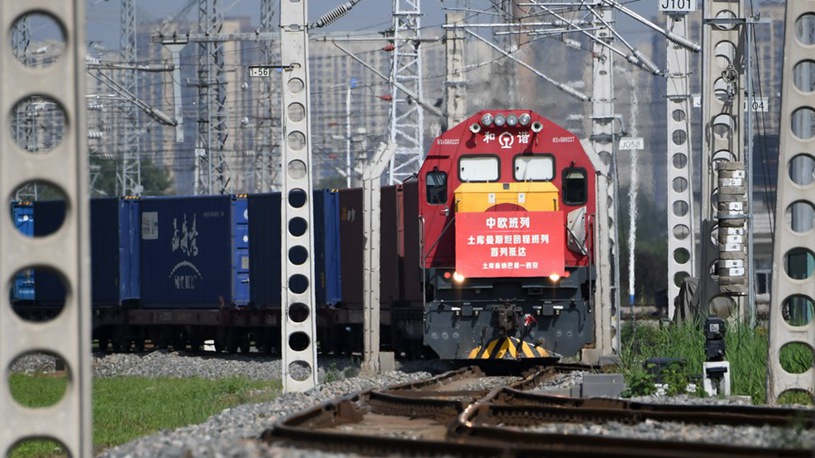Interview: Gas shortages, cold weather to deal blows to European companies, says economist
ROME, Sept. 19 (Xinhua) -- With colder weather on the way and European countries' access to natural gas from Russia cut off, rising expenses and scarce energy supplies could create an economic "tsunami" for many European companies, an economist told Xinhua in an interview.
Due to the impact of the conflict between Russia and Ukraine, prices for natural gas have skyrocketed this year, which has had a knock-on impact on other sources of energy and pushed inflation to record highs.
Lorenzo Codogno, chief economist at LC Macro Advisors, told Xinhua that the worst is probably yet to come.
According to Eurostat, inflation in the 19-nation Eurozone hit a new record of 9.1 percent in August, with food and energy prices continuing to soar.
"Right now, you have a tug-of-war between the cost-of-living crisis on the one hand, and then resilience in many sectors and aspects of the economy on the other," Codogno said. "But if you look at the data, it's like a tsunami is coming."
Both consumer inflation and industrial production will be hit simultaneously, said Codogno, who is also a visiting professor at the European Institute of the London School of Economics and Political Science.
"The squeeze in real disposable income is so substantial and you would expect, probably in the late third quarter, but most likely in the fourth quarter, a substantial slowdown in consumption," Codogno said.
"If you look at monthly data, there is still some resilience. But some companies don't have pricing power -- they are not increasing prices. So they are effectively absorbing the cost-of-living prices in their margins, and wages are not rising dramatically right now," he added. "Inevitably, the purchasing power of households will be affected."
The economist said policymakers will be instrumental in deciding how difficult the winter energy crisis will be, in terms of which measures are introduced to reduce high energy costs, tax support for energy-intensive companies, support for lower-income families, and other measures.
"It really depends (on) how much it (the crisis) is offset by policy measures, and how much of the resilience is in the system," Codogno said. "For instance, there's still a lot of savings in the system, and that can be used to support consumption. But we don't know how much, and figuring that out depends on confidence, which is weakening fast."
Codogno said the economic problems will be felt across Europe, as "the squeeze in real disposable income is coming from higher inflation."
"There are some countries where it's dire and in others, it's a bit lower, but it's a European phenomenon," he said.
The severity of the problem is decided by factors including geography and the industrial structure of a country, Codogno explained. Countries with longer and colder winters, as well as those with large, energy-hungry industrial sectors, will be more vulnerable to high gas prices.
"There are some production sectors such as steel, the ceramic business or the paper business that are highly energy intensive, and they usually use gas," Codogno said. "These kinds of sectors are more in southern Europe rather than Northern Europe."
"It looks like the Baltic states and the countries bordering Russia are more dependent on Russian gas not only for domestic use, but also for industrial use. Germany and Italy, the two big manufacturing hubs in Europe, are heavily dependent on gas," he said.
Photos
Related Stories
- Soaring energy prices ordeal for European leaders as protests erupt in more countries
- A bitter pill to swallow for Europe: locals gripped with severe energy crisis protest paying price for political games
- Eurozone inflation hits new record of 9.1 pct amid higher energy, food prices
- Europe faces ‘coldest’ winter as energy crisis deepens, likely to prompt restructuring of global industrial chain
- Chinese GDRs in Europe boost capital
- Energy crisis deepens in Europe as extreme drought hits electricity output
- Heatwaves, severe droughts cause Europe searing pain
- Europe engulfed by new COVID-19 wave, says ECDC expert
- Interview: Europe suffers under its own sanctions on Russia, says Croatian analyst
- Roundup: Europe faces unusual mid-June heatwave
Copyright © 2022 People's Daily Online. All Rights Reserved.









